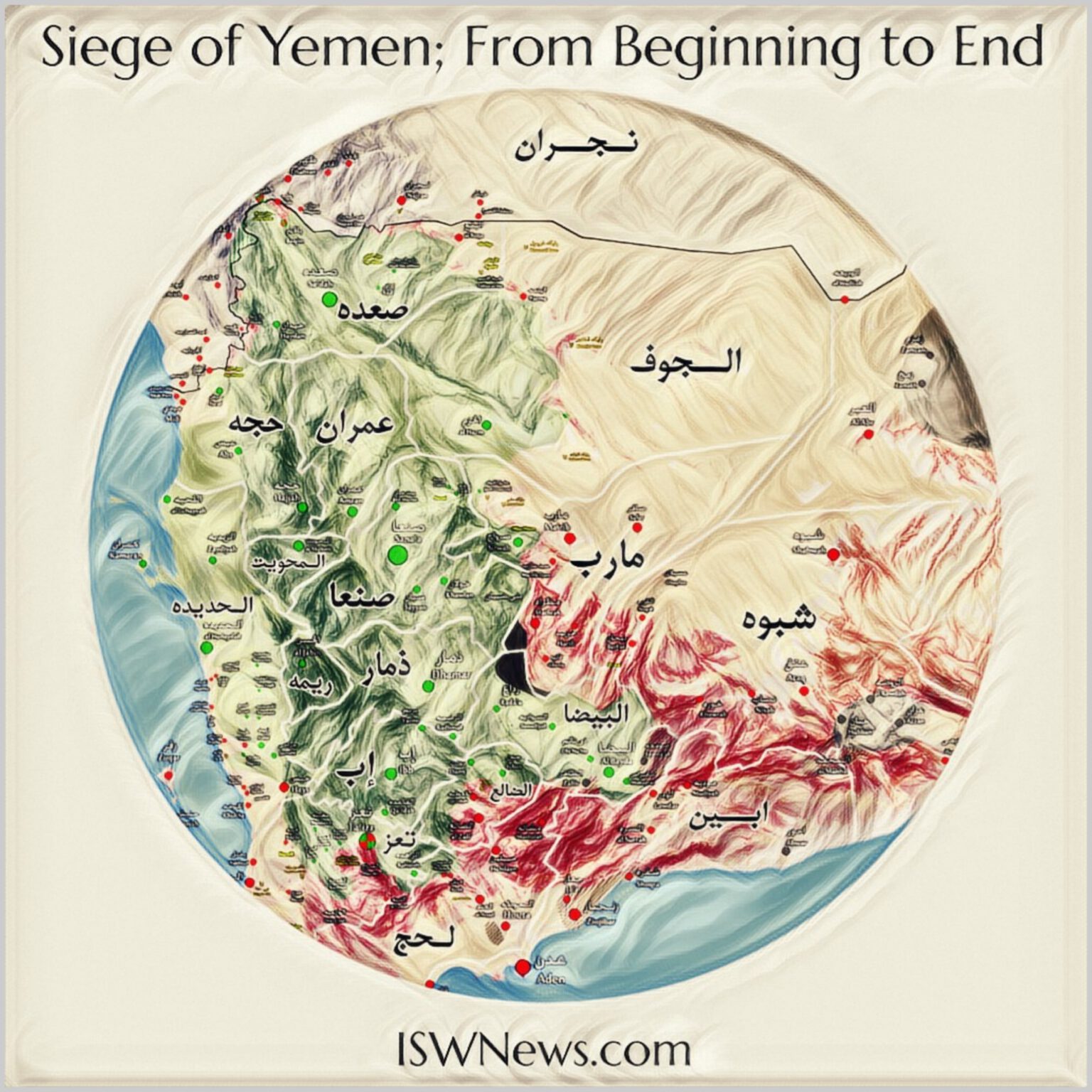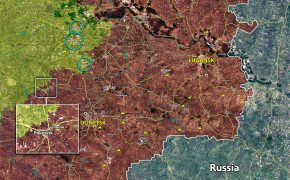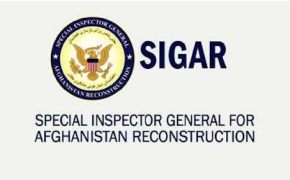Opinion: Siege of Yemen, From Beginning to End

Arrival of Iranian tankers at Venezuelan harbors and breaching the embargo of the country is a huge leap in Iran’s foreign policy and a blow to US arrogance which can be helpful in future, specially about Yemen. Yemen had become the main battlefield between the Resistance and the West and both sides are reluctant to […]
Arrival of Iranian tankers at Venezuelan harbors and breaching the embargo of the country is a huge leap in Iran’s foreign policy and a blow to US arrogance which can be helpful in future, specially about Yemen.
Yemen had become the main battlefield between the Resistance and the West and both sides are reluctant to accept defeat in this arena.
The Resistance could destroy the cores of terrorism in Syria, Lebanon, Iraq and Gaza with help of Iran and its allies and now the only active front with main threats is Yemen. Therefore Saudi Arabia and UAE besieged Yemen from all aspects to cut Iran’s helps to Ansar Allah from the beginning of the assault. They even controlled or formed allegiance with Somalia, Djibouti, Sudan and Eritrea which could be helpful for Iran to support Ansar Allah. Americans hindered Iran aids using political tricks. All these oppressing acts resulted in unfair siege of Yemen and its people in several years.
We examine some points regarding this topic:
1. Iran’s mistakes in foreign policy toward horn of Africa:
Sudan, Djibouti, Somalia and Eritrea were among states that Iran expanded relationship with to enhance maritime transportation safety in the Red Sea and Gulf of Aden.
After the start of Yemen war, these countries changed their course an incredible amount of 180° and against Iran’s interests, started to follow Saudi coalition on sieging Yemen.
Even though these countries cutting ties with Iran was considered as joke by many but it just shows Iran’s policy was not correct in horn of the Africa and resulted in Yemen full siege.
Iran’s mistakes are:
a) Ignoring US influence on horn of the Africa:
In addition to political and power influence, USA has a huge base “Camp Lemonnier” in Djibouti which hosts many warplanes and American soldiers.
b) Taking wrong stances toward Somalia civil war.
c) Media and political passivity against UN and Saudi Arabia accusations regarding transporting weapons to Somalia and training Ansar Allah troops.
d) Opening relationship with low level and weak politicians such as Omar al-Bashir.
2. Guarantee of Iranian politicians to the United States to stop sending aid to Yemen:
The only evidence is former US secretary of state, John Kerry, remarks at the council on foreign relations on Iran, on 24 July 2015 who said: “A few months – a couple of months ago, I guess it was, when you saw a convoy coming down out of Iran heading towards Yemen, I was on the phone in an instant to my counterpart, and made it very, very clear that this could be a major confrontation, that we were not going to tolerate it. And he called me back, indeed, within a short span of time and said, “They will not land, they are not going to unload anything, they are not going to go out of international waters,” and then they went home.”
In fact such decisions without strategy helped Yemen’s siege.
3. Ansar Allah negotiation with Saudi coalition to lift the siege:
Saudi coalition, who didn’t expect Yemen’s brave resistance, had to negotiate with Ansar Allah to achieve its political goals at the same time with military missions. The negotiations are:
a) In Geneva, June 2015.
b) In Muscat, September 2015.
c) In Switzerland, December 2015. Which were all unsuccessful.
d) In Saudi Arabia, spring 2016. It was the first negotiation in Saudi Arabia and was unsuccessful finally due to obstruction by resigned government of Mansour Hadi and Ali Abdullah Saleh.
e) Kuwait negotiation which was not successful due to assigning Ali Mohsen al-Ahmar as vice president of Mansour Hadi resigned government.
After failure of talks in Kuwait and rejection of US and UN plans by Mansour Hadi resigned government, the plans by Persian Gulf Cooperation Council and National Dialogue Conference were introduced which was accompanied by UN security council resolution 2216 which entails “forming a committee to monitor drafting the new constitution”, “timetable to hold general election” and “holding of a referendum”. National talk conference emphasized on forming a federal government of several areas by Yemeni groups agreement and resolution 2216 also accepting these two plans emphasized on political solution and ceasefire.
These plans failed as well and battle in west o f Yemen coasts from Bab al-Mandab Strait to south of Al Hudaydah and north of Hajjah province intensified.
On December 14, 2018, the resigned government and Ansar Allah agreed on ceasefire, exchanging POWs, lift of siege of Taiz and west of Yemen areas in Stockholm, Sweden.
In this agreement the control of Al Hudaydah harbors were left to local joint forces and the income of oil export from Marib oil field was done by Sanaa central bank and the siege of Sanaa airport and Taiz to be lifted. But due to political discord and UN passivity in supervising the obligations of Mansour Hadi resigned government, Ansar Allah limited their obligations on joint forces controlling the harbors.
After this, there were significant turn in the war by Ansar Allah’s drone and missile attacks on Saudi Arabia oil infrastructure, operations of north of Saadah and Al Jawf. After being passive and on weak side, Saudis started Muscat talks.
What has been released unofficially from Muscat talks, from delegates of both sides talks (Muhammad Abdulsalam and Khalid Bin Salman), Khalid Bin Salman direct call with Mahdi al-Mashat and UN convoys meeting with Ansar Allah officials, the following are topics of talks:
a) Ceasefire in southern border of Saudi Arabia and DMZ along border.
b) Lifting siege of Yemen and reopening Sanaa airport.
c) Limiting Ansar Allah’s drone and missile attacks to Saudi Arabia.
d) Ansar Allah cutting ties with Iran in return for Saudi support for Ansar Allah.
Ansar Allah leader in his meeting with UN special convoy Martin Griffiths, rejected cutting ties with the Resistance and conditioned any ceasefire to lift of siege of Yemen.
As Ansar Allah stopped attacking Saudi Arabia oil infrastructures in return for several medicine cargo planes landed in Sanaa and some ships conveying oil products released.
At the moment, most of the previous negotiations have failed which is due to the West pressure on Saudi Arabia, discord between Saudi coalition, continuation of air strikes and siege of Yemen.
YOUR SUPPORT IS CRITICAL TO KEEP ISWNews ALIVE!
I’d like to thank readers for their confidence and support. Thanks to your support we can continue to perform our duty on reporting the important events in the region. So If you like our contents, please don’t feel embarrassed to contribute and help our project, for as little as 1 Dollar. Your contribution, however small, will help ensure our project continuity. Thank you.




Comment